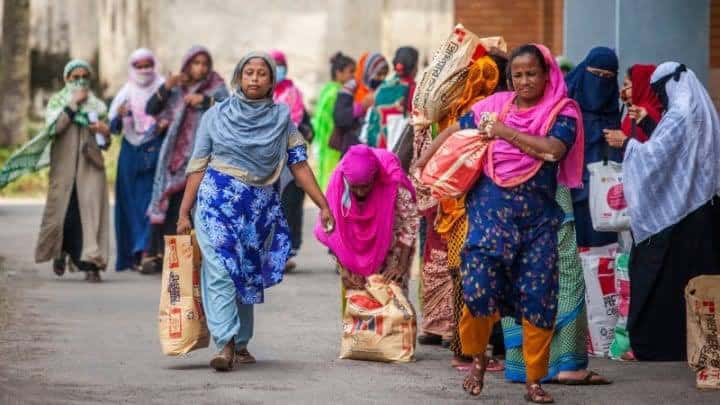
Have you ever thought of the miserable experiences of migrant workers during the COVID-19 crisis from the perspective of women? If not, sit tight. This article focuses on the Indian migrant women workers’ experience of the COVID-19 pandemic. Nonetheless, the unfortunate circumstance of transient women and their families is obvious from the themes that emerged. The findings of studies show that COVID-19, the lockdown, and the following period were a crash to the most helpless population.
The study shed light upon the terrible state of wandering women employees and their families, due to the unpredicted lockdown and successive periods of socio-economic and health disaster. The major issues arising from the disasters about women’s experience encompass the penalty of livelihood and deficit. The participants had to adjust many basic requirements in their daily habitation. The responsibility of duty and confinement has made the existence of women stressful. Nonetheless, women are suffering a substantial turmoil of access to assistance as a result of lockdown and restrictions.
Loss Of Employment And Deriving Debt
Several thousands of transient workers come to Delhi and Gurugram from other regions every year because of the adequate career options accessible. Reasons, the earnings and potential revenue are comparatively high in these regions. However, the eruption of COVID-19 and the successive unprecedented lockdown has extremely affected the job alternatives of the migrant workers. Thus, the women migrant laborers’ are suffering an exact penalty of livelihood openings and the arising increased deficit.
Settlement
The financial trouble occurring from the penalty of employment forced the women migrant workers’ to negotiate in several areas of their lives. They are required to prepare life-changing adjustments in acknowledgment of the unusual situation, particularly the loss of career and resources they had accessible. Many participants noted that they were not able to fulfill their everyday necessities nor those of their families.
Captivity And The Limitation Of Responsibility
Captivity and the limitation of responsibility refer to women’s experience of constraints, regulations, and being devastated during the pandemic. Lockdown and mobility limitations made impressions of withdrawal and detention for most of the women. Immediate shifts in ritual from being at the job to no livelihood negatively affected these women. The emotion of custody is worsened by the pressure of a sequel of duties, comprising organizing the family with restricted resources and parenthood.
Disrupted Access To Assistance
Regular access to resources, assistance and faculties has been harshly disrupted due to COVID-19 and lockdown. For people dwelling in slums, whose access was already restricted, this has become extremely complicated. The disrupted access refers to the problems in accessing essential assistance and services during the lockdown and throughout the pandemic, which expanded to making normal life a battle.
Conclusion
The COVID-19 pandemic has universal effects on people across the planet. The weak sectors of the population, however, have been disproportionately affected by the pandemic, and the case of transient laborers in countries like India is a question of serious concern. The article lights into the various experiences of transient women during the COVID-19 pandemic in India.
Life in the metropolitan ghettos left migrant women and their families with restricted options contemplating retaining reasonable social distance. This also leads to huge uncertainty. It was also apparent that participants are pursuing precautionary norms to stave off COVID-19 because of anxiety of illness. The parliament criteria formulated for the vulnerable categories of society have not attained most of the participants. Nonetheless, actions should also be taken to renovate economic actions that are comprehensive, where migrant workers feel optimistic, secure, and comfortable.
Image courtesy: Devex
Udisha Srivastav is a Freelance Content Writer with Femsay.com

